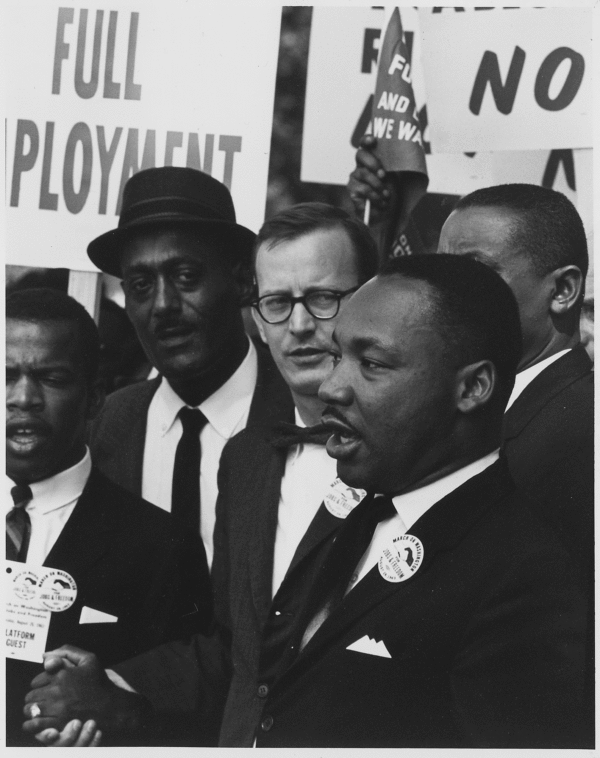The worth of a person comes not from the color of their skin but from the value of their maker.
Dating as far back as Jesus’ days on earth, racism has been a dividing issue. For centuries discrimination has pitted individuals against each other in a destructive war of hatred. The issue was debated by this country’s founding fathers and nearly split the United States in two in the 1860s. A hundred years later, our country was on the verge of race war again, when Dr. King led the way to justice through peace. In the 1990s, there were race riots in LA. In 2012 and 2013, the wound of racism was raw again as the country wrestled with the death of Trayvon Martin. How can it be that race remains an issue 2000 years after Paul wrote, “There is neither Jew nor Gentile…we are all one in Christ” (Gal 3:28)?
I believe the Bible’s marching orders to Christians in America and across the world are crystal clear: get serious about healing the wounds of racism. As followers of Jesus may we stand for the truth of God and fight against the evils of prejudice, discrimination and racism.
We are reminded through the parable of the Good Samaritan (Luke 10:25-37) that we are to love our neighbor, regardless of race or creed. The Samaritan modeled for us a love and kindness that trumped the discords between us. The world and all of its colors, complexities, and diversity needs to know they are our neighbor. There is no distinction made in who we are to love because all have been made in His image and all are loved by Him. As Christians of various genders and ethnicities, may we heed the words of 1 John 2:9: Whoever says he is in the light and hates his brother is still in darkness.
The world will believe our words when we show them our love. I pray that as God’s people we will rise to the occasion and proclaim Christ through the unprecedented love of all peoples. May we seek to view others with a humble compassionate love that crosses boundaries and destroys barriers.
Martin Luther King Junior was used by God in a momentous way during his short lifetime. At a time when the USA was on the verge of tearing itself apart with anger and fear, Dr. King taught the power of living out Biblical truth – nonviolence, turning the other cheek, practicing mercy and standing for justice. With his incredible power of spoken and written communication, Dr. King inspired and united the nation, rather than condemning or shaming. Dr. King stood against racial discrimination, not only because his own race was suffering unspeakable atrocities and oppression, but because he understood racism as an affront to God. Because of this conviction, he suffered constant threats to himself and his family and ultimately lost his own life to stand against racial injustice. You can read a great “mini-biography” of this great man here.
Both Dr. King and the Bible teach that the cure for racism is neighborly love—a love that pursues, ignites, and affirms a passion for the acceptance of all people made in God’s image. An unconditional love that recognizes Christ’s supreme act of reconciliation on the cross.
How have you seen love overcome racial tensions in your neighborhood? In what ways do you think we’ve made progress toward healing in the 46 years since Dr. King’s death? How is your church commemorating Dr. King this month? As we pause today to recognize Dr. King’s life, let’s challenge ourselves to continue his work of reconciliation in our own lives and neighborhoods.
“A new commandment I give to you, that you love one another: just as I have loved you, you also are to love one another.” John 13:34



Leave A Comment